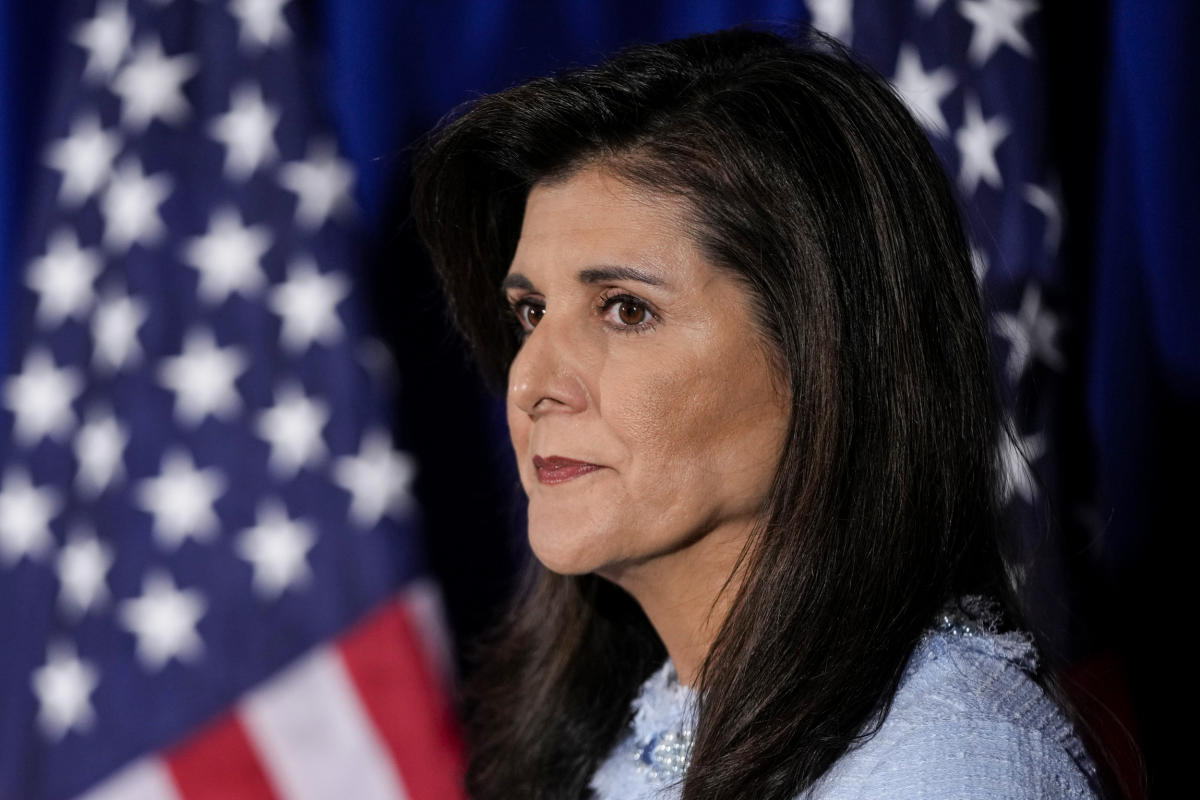GOP presidential candidate Nikki Haley declined Sunday to endorse a federal abortion ban and said it would not be honest for a Republican to promise such an unrealistic prospect to the American people.
In an interview on CBS’ “Face the Nation,” Haley, who was ambassador to the United Nations and governor of South Carolina, said, “For a national standard, I think we have to tell the American people the truth.”
She noted the political realities of passing federal legislation through Congress: “In order to do a national standard, you’d have to have a majority of the House, 60 Senate votes and a president. We haven’t had 60 pro-life senators in 100 years.
“So the idea that a Republican president could ban all abortions is not being honest with the American people, any more than a Democrat president could ban these pro-life laws in the states,” Haley said. “So let’s be honest with the American people and say: Let’s find national consensus. Let’s agree on getting rid of late-term abortions.”
CBS’ Margaret Brennan noted that Sen. Tim Scott, R-S.C., who is exploring running for president next year, has recently endorsed a 20-week abortion ban — “so he is picking a week” of gestation — before she asked Haley: “Some of your fellow Republicans are. Why do you feel like that’s misdirection?”
Haley argued that it would be unrealistic to endorse a specific number of weeks of pregnancy when the Senate filibuster would be likely to stand in the way of passing a strict federal ban.
“I’m not going to lie to the American people. Nothing’s going to happen if we don’t get 60 votes in the Senate. We’re not even close to that on the Republican or the Democrat side,” she said.
“Why try and divide people further? Why not talk about the fact that we should be trying to save as many babies as possible and support as many mothers as possible?” Haley added. “I think the media has tried to divide them by saying we have to decide certain weeks. In states, yes. At the federal level, it’s not realistic. It’s not being honest with the American people.”
Haley recently called for “consensus” on the issue of abortion and downplayed the importance of the debate over exceptions and weeks of pregnancy. She, however, made it clear that she does see a federal role.
“My goal as president will be the same as it was when I was governor and ambassador: I want to save as many lives and help as many moms as possible,” Haley said last month. “At the federal level, the next president must find national consensus.”
Republican National Committee Chair Ronna McDaniel last month urged Republicans running in the 2024 presidential election cycle to tackle the issue of abortion access “head-on,” noting that many GOP candidates did not in the 2022 midterms, which brought lackluster results for the party.
“Put them on the defensive and articulate where you stand, and that’s going to be the critical message we have to get out before 2024,” she said.
Abortion access emerged as a key issue in the November elections after the Supreme Court overturned Roe v. Wade, a landmark decision that guaranteed the constitutional right to abortion, in June.
Republican presidential candidates, who must consider a base that favors banning abortion and a majority of the nation that favors keeping it legal, have struggled to find consensus.
This article was originally published on NBCNews.com








